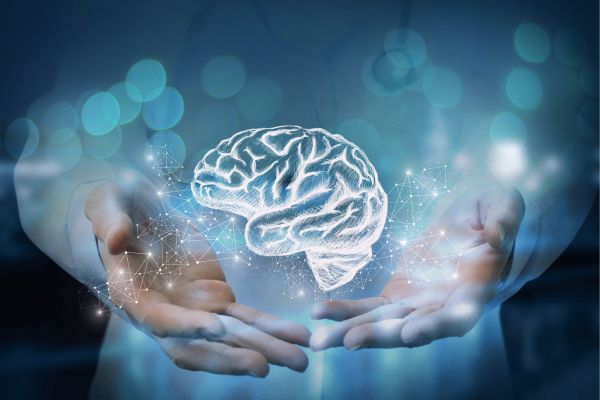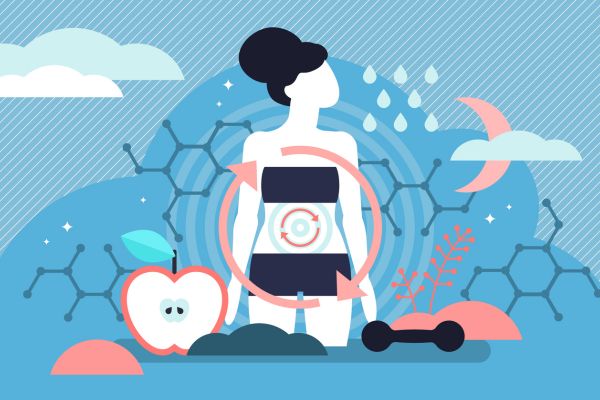
From the Desk of Carolyn Dean MD ND
In my book, Total Body ReSet for Women, I talk about what I call “The Four Hormones of the Apocalypse”, and the organs that release them. Despite what you might read online or hear from your doctor, the adrenals, thyroid, ovaries, and pancreas are deeply interconnected. The best approach is to support them all together.
When you visit your doctor suspecting thyroid, adrenals, pancreas or ovarian issues, you’ll likely be referred to an endocrinologist. I’ve yet to hear anybody report that their endocrinologist was eager to find the underlying cause of their symptoms or explore natural solutions.
Anything I share with you today in terms of supporting your endocrine system will in truth support your whole system. It’s a complex system and often confusing, so let’s take it apart piece by piece — starting with your adrenals and their primary hormone, cortisol.
I’ll start here because it’s a condition that is completely ignored in the mainstream medical community and still misunderstood by natural medicine practitioners.
What happens when you search online to find helpful information about adrenal fatigue? You find warnings and misinformation.
What Dr. Google or an MD might say about :
If your naturopath, or a concerned friend has suggested that your symptoms might indicate adrenal fatigue, you’ll likely search online for some information to help you decide how to move forward and start getting relief.
But the first pages of Dr. Google quickly tell you that adrenal fatigue is not a real condition and to be cautious of any practitioner who says otherwise. There are no statistics about the number of people who have this condition because it’s not recognized as a medical diagnosis. The symptoms that people attribute to adrenal fatigue can be found online with a few tweaks in your search wording and they include:
- Persistent fatigue not relieved by sleep
- Difficulty waking up in the morning and trouble falling asleep at night (insomnia)
- Cravings for salty or sugary foods
- Brain fog and difficulty concentrating
- Increased irritability, anxiety, or depression
- Low blood pressure or dizziness when standing up quickly
- Weakened immune function and frequent infections
- Unexplained weight changes (gain or loss)
- Decreased libido
Dr. Google explains these symptoms away medically as stress, lack of sleep, or burnout.
Mainstream medicine does recognize adrenal insufficiency (Addison’s Disease) as a serious rare disorder where the adrenal glands fail to produce enough adrenal hormones.
But what I see as “adrenal fatigue” may be a warning that your adrenals are struggling — a state just shy of insufficiency.
If you complain to your MD an unrelenting wave of the above symptoms, they’ll likely suggest a prescription or two of antianxiety medication and/ or antidepressants and wait until your adrenal glands simply stop producing cortisol. Only then will you get help because they’ve clocked a “real” medical condition, Addison’s Disease.
Or you can begin taking the proper amounts of picometer, stabilized ionic minerals like magnesium with a side dish of vitamins B and C.
What I say about the adrenal fatigue and cortisol
To be clear, I consider adrenal fatigue to be an epidemic, especially among women who have declining adrenal function. Unfortunate articles in the medical community claiming that adrenal fatigue is not a “real condition” give doctors permission to ignore the real suffering of their patients
They didn’t learn about it in medical school, so despite them seeing waves of women with the same debilitating symptoms, they medicate instead of investigating.
Frankly, I’m still shocked by the lack of curiosity in today’s medical community.
About the adrenals
The adrenals are two triangular-shaped glands that sit atop the kidneys. The outer cortex produces cortisol, aldosterone, and pre-testosterone hormones. The inner medulla and releases epinephrine and norepinephrine (also called adrenaline and noradrenaline).
In all, the adrenals are responsible for the production of more than 50 hormones. It’s impossible to choose one of those hormones to test that represents the functioning of the whole gland. By comparison, the thyroid is easier to test with its 2 major thyroid hormones.Adrenal hormones fall into four categories:
- Mineralocorticoids — primarily aldosterone, which maintains salt and water balance and helps regulate blood pressure.
- Glucocorticoids — chiefly cortisol, the body’s natural steroid, released in response to stress and illness.
- Adrenal androgens — male sex hormones like DHEA and testosterone, present in both men and women.
- Catecholamines — adrenaline, noradrenaline, and small amounts of dopamine, which drive the body’s “fight or flight” response.
Why stress matters
This complex gland has a lot of work to do and stress definitely has an effect on its functioning which is why the adrenals get fatigued. In addition to stress, the most common reasons for adrenal fatigue and dysfunction are poor diet, nutrient deficiencies, chronic inflammation, and an underactive thyroid (which I’ll talk about in a future blog).
What you can do now to support your adrenals
If you’re dealing with adrenal fatigue, you need plenty of rest. You may need 8-10 hours of sleep and naps to help you heal from this very real condition. Please don’t feel guilty for having no energy and needing rest. You cannot “power” your way out of this condition!
The treatment for adrenal fatigue begins with sodium, which is crucial for maintaining proper adrenal function. If your adrenal glands are weak or depleted, as indicated by exhaustion, low blood pressure, and chronic stress, there is a combined sodium and magnesium depletion. If you start taking large doses of magnesium without replacing sodium, you may feel even worse. I recommend ¼ tsp of sea salt in every pint of drinking water. And please drink half your body weight (in pounds) in ounces of water each day. I also recommend a yeast-free diet if you suspect you have adrenal fatigue.
Magnesium should be in the picometer, stabilized ionic form. And the dose should be around 600mg per day. This liquid magnesium is diluted in a liter of sea-salted water and sipped throughout the day. Magnesium is essential for the proper functioning of approximately 80% of known metabolic processes.
Vitamin C The adrenal glands crave vitamin C and have some of the highest concentrations in the body. It’s because this vitamin is involved in the production of adrenaline and noradrenaline and steroid hormones (like cortisol), which occur in the adrenals. Vitamin C levels decline during stress and must be replaced.
Vitamin D is a prohormone, which regulates the production of hormones as well aiding the absorption of calcium to protect our bones. Most vitamin D blood tests show that we may need about 5,000iu a day along with a dose of vitamin K2. Remember, magnesium is necessary for the activation of vitamin D.
Vitamin B Complex – a methylated and food-based B complex formula, along with two sulfur-based amino acids, provides several vitamins that are necessary for adrenal support and detoxification, as well as all the critical methylation functions of the body.
Multiple Minerals – picometer, stabilized mineral ions support thyroid hormone production as well as adrenal and sex hormone balance.
The above formulas make up my daily protocol, and I feel better now in my mid 70s than I did in my 30s!
If you’d like to build your own protocol, our Customer Experience Team would be happy to guide you through it and help tailor what’s best for you.
Next week, I’ll share my insights about your thyroid hormones!
Carolyn Dean MD ND
The Doctor of the Future



